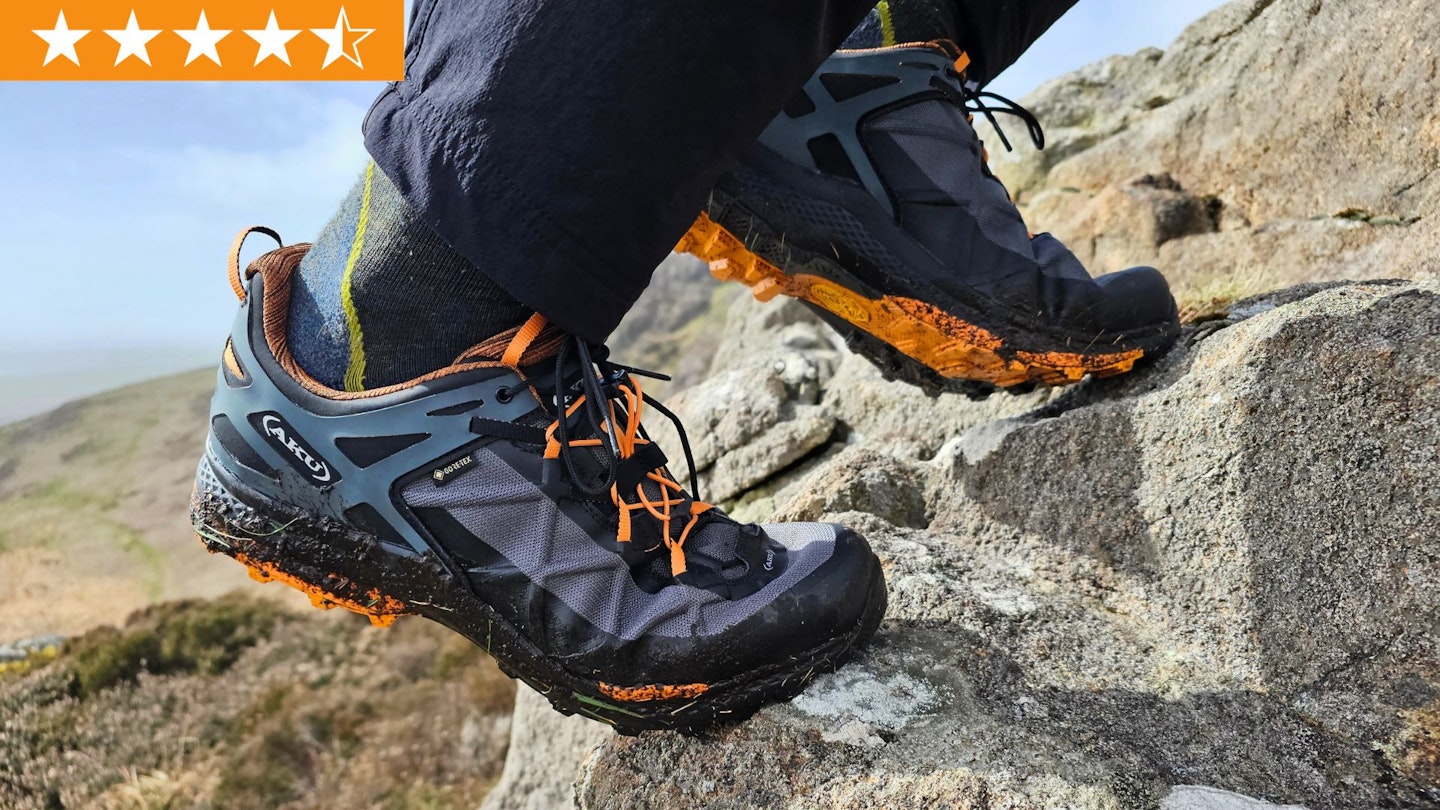Italian brand AKU has built an excellent reputation for its footwear, which encompasses everything from no-nonsense military boots to the ‘Gear of the Year’-winning Trekker Lite III hiking boot. The Rocket DFS GTX is a slight departure from these models though. It’s been developed as a low-cut ‘fast hiking shoe’, though with an Alpine ethos that makes it more structured and protective than many similarly lightweight trainer-style hikers.
It’s also packed with tech. This includes the brand’s renowned Elica Natural Stride System for improved biodynamic efficiency, a ‘DFS’ dual fit system that allows you to dial in the fit as required, and innovative Vibram Traction Lug technology that supposedly improves traction and grip by 25%.
Intrigued by these technical hiking shoes, we put them to work in the mountains of Snowdonia to find out how its tech and clever design comes to life in real world conditions.
 LFTO
LFTOwww.alpinetrek.co.uk
Pros
- Impressively lightweight
- Superb traction
- Structured and supportive for a trail shoe
- Versatile
Cons
- Quite pricey
- Fussy lacing may be off-putting
| Weight (per shoe) | 370g |
| Upper | Mesh and textile w/ Gore-Tex lining |
| Sole | Vibram Traction Lug Megagrip w/4mm lugs |
| Men's sizes | UK 7 -12 |
| Women's sizes | UK 4 - 8.5 |
Upper
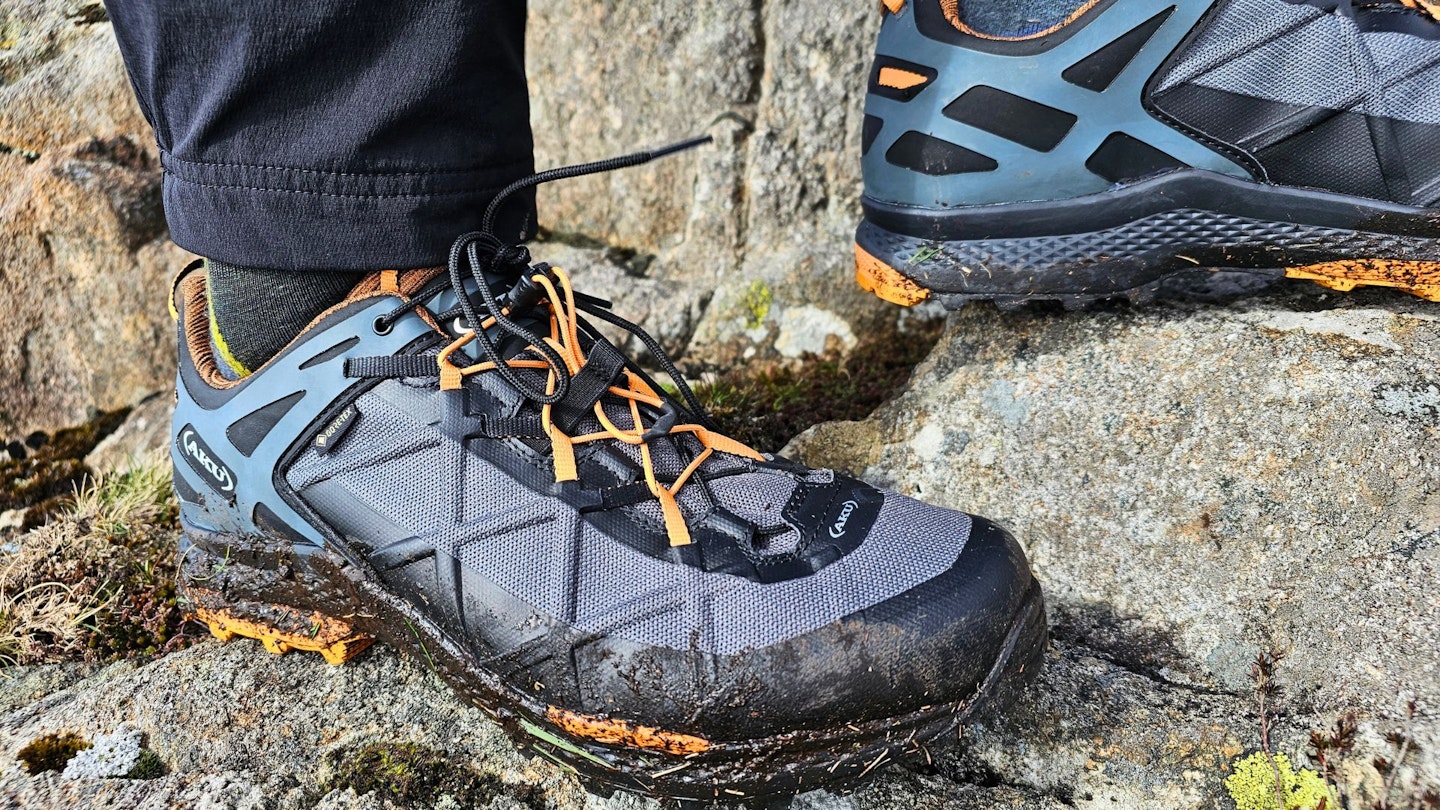
The Rocket is a hiking shoe with unusual and striking looks. Its upper is built from a combination of synthetic textiles, designed to offer durability and protection in a sleek, lightweight package. The design features a crossed rib structure in the midfoot, while the rear section is protected by a 3D print overlay. This adds plenty of structure and support and feels very robust. A lightweight laminated TPU rand protects the front of the shoe, adding rigidity to the toebox and helping to fend off trail impacts.
It's all backed with a Gore-Tex Performance Comfort lining for reliable waterproof protection. The top collar of the shoe is finished with a soft and supple fabric padding for comfort around the heel, Achilles and ankle joint. Chunky stitched webbing loops at both the tongue and heel make it easy to pull the shoes on and off.
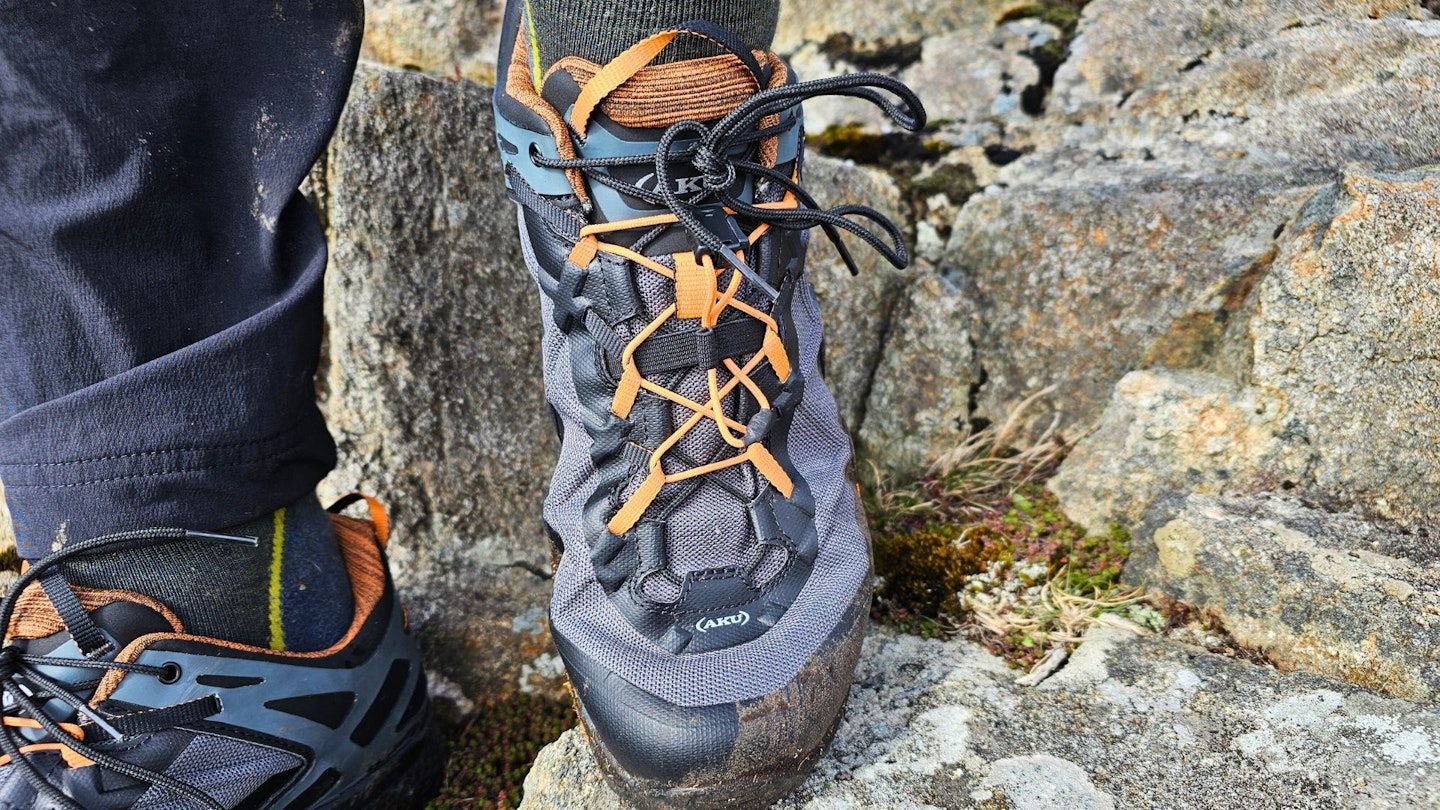
The lacing system is exclusive to AKU, making use of the brand’s Dual Fit System (DFS) technology. We’ve seen this before in their approach style shoes like the Rock, but here it’s been adapted to speed hiking. Essentially, there are two sets of laces: a primary set and a secondary ‘quicklace’ set. This allows you to quickly adjust the fit around the midfoot for increased precision on technical terrain.
Midsole
Underfoot, the Rocket features a midsole composed of double density PU. This is a little more solid than EVA foam rubber midsoles, but also more resistant to long-term compression. It ensures a stable platform with plenty of lateral stability, reducing torsional twisting that can stress or fatigue the foot.
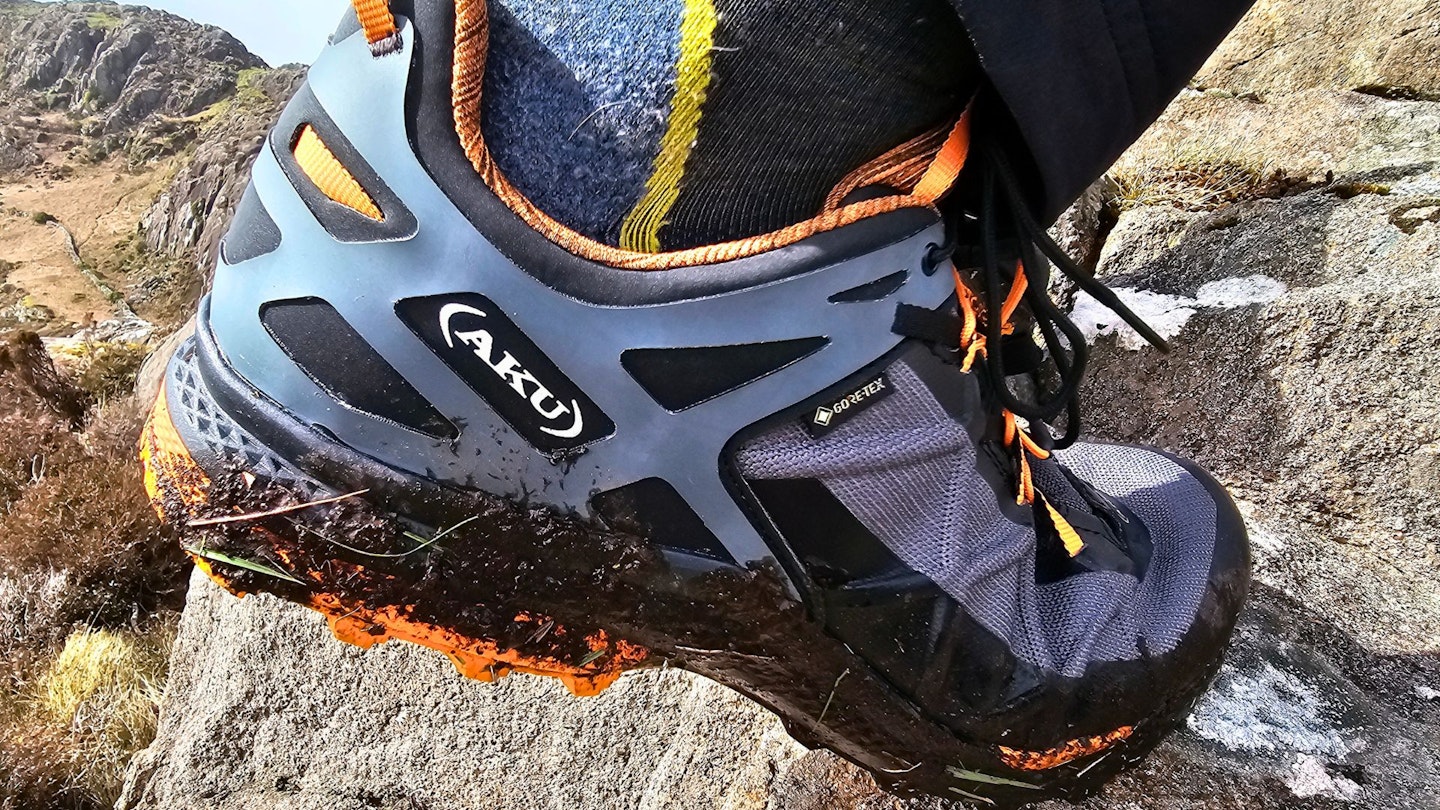
Since this is a ‘fast hiking’ shoe though, there is still plenty of front flex for an easy walking action. The shoe is also lasted with a 2mm polypropylene shank embedded in a thin layer of die cut EVA foam rubber, adding underfoot protection and stability. The supplied footbed is a basic Ortholite X25-Hybrid insole made from partially recycled materials.
As previously mentioned, the shoe also features AKU’s Elica natural stride technology. It’s an integrated combination of the shoe last, insole board, midsole, and outsole, all of which are designed to mimic the anatomical shape of the foot. According to the brand, this has multiple benefits. Firstly, it provides better stability and weight distribution across the sole to reduce pressure points and encourage better form while moving. It also improves arch support, reduces impact and pressure during ‘toe-off’, all of which should mean less fatigue for the foot.
AKU clearly believes in the tech – it's a feature of almost all its higher-end footwear. And we do think it makes a difference to overall comfort, especially at the end of a long hill day. Our feet felt noticeably less fatigued and tired.
Outsole
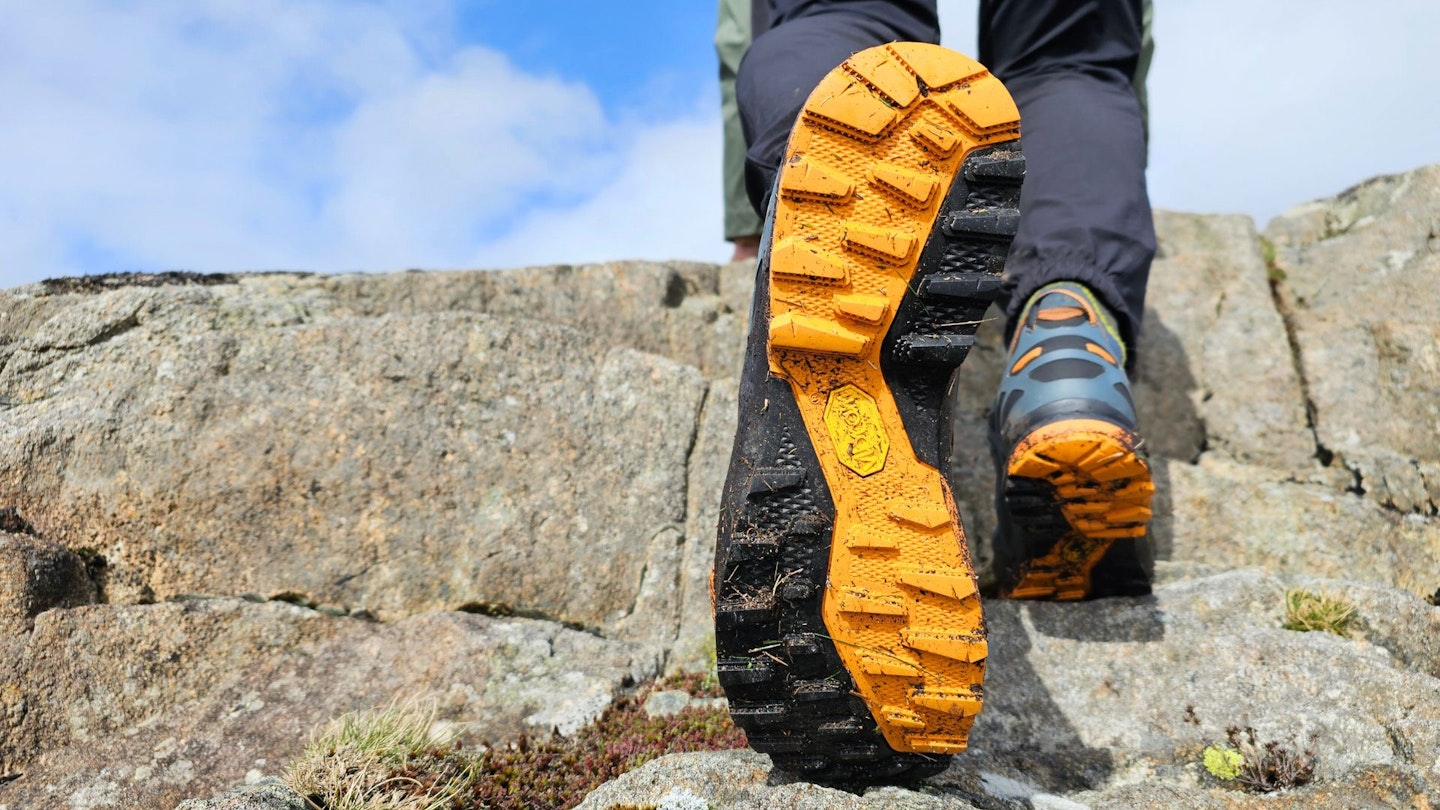
The Vibram sole unit has a slight rocker profile, to encourage forward motion and a rolling gait. It’s made from the brand’s tried and tested Megagrip rubber compound. However, it’s the lug design that is the most innovative element of the sole. The Rocket features Vibram’s ‘Traction Lug’ technology, which consists of stacked 4mm lugs, each of which has a series of serrations in the form of tiny, moulded rubber teeth. According to Vibram, this can improve overall traction by up to 25%.
It’s a good design – on test, we could see that it considerably increases the surface area of rubber in contact with the ground, combining widely spaced lugs that clear out mud well with broad, flatter areas for dependable contact grip on rock.
Price and performance
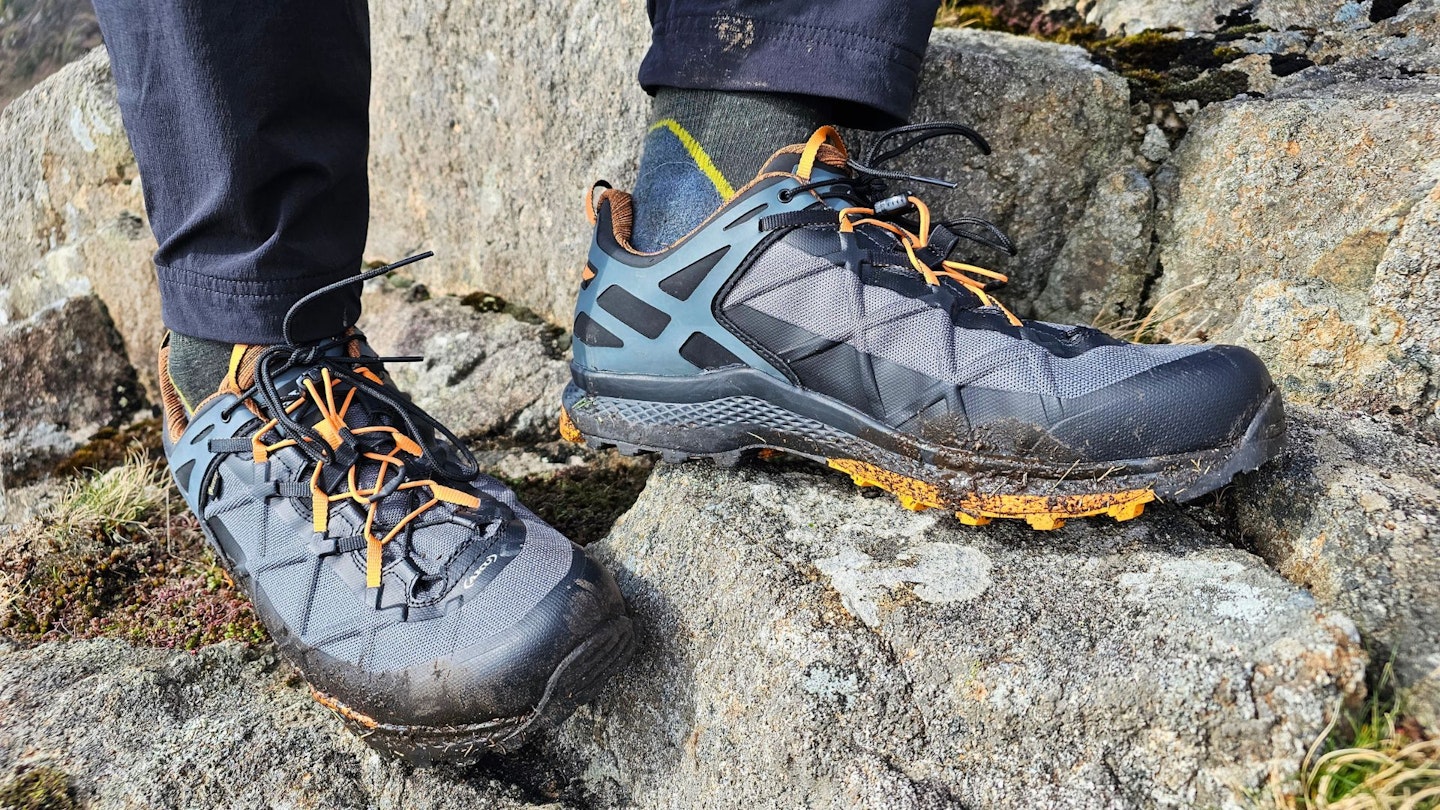
With a UK RRP of £215, this is an expensive hiking shoe, being the same price as many three-season boots. But we’d also say it’s very durable, very versatile, and one of the most capable trail shoes we tested. So, whether it’s the right choice for you will depend firstly on your individual needs and secondly on how much you’re willing to spend.
Although it’s very comfortable, it’s also not as soft or plush underfoot as maximalist trainer-style hikers. If you want a springy, mega-cushioned feel underfoot, you should probably look elsewhere (your first port of call might be Salomon’s Elixir Activ, or Hoka’s Anacapa Low).
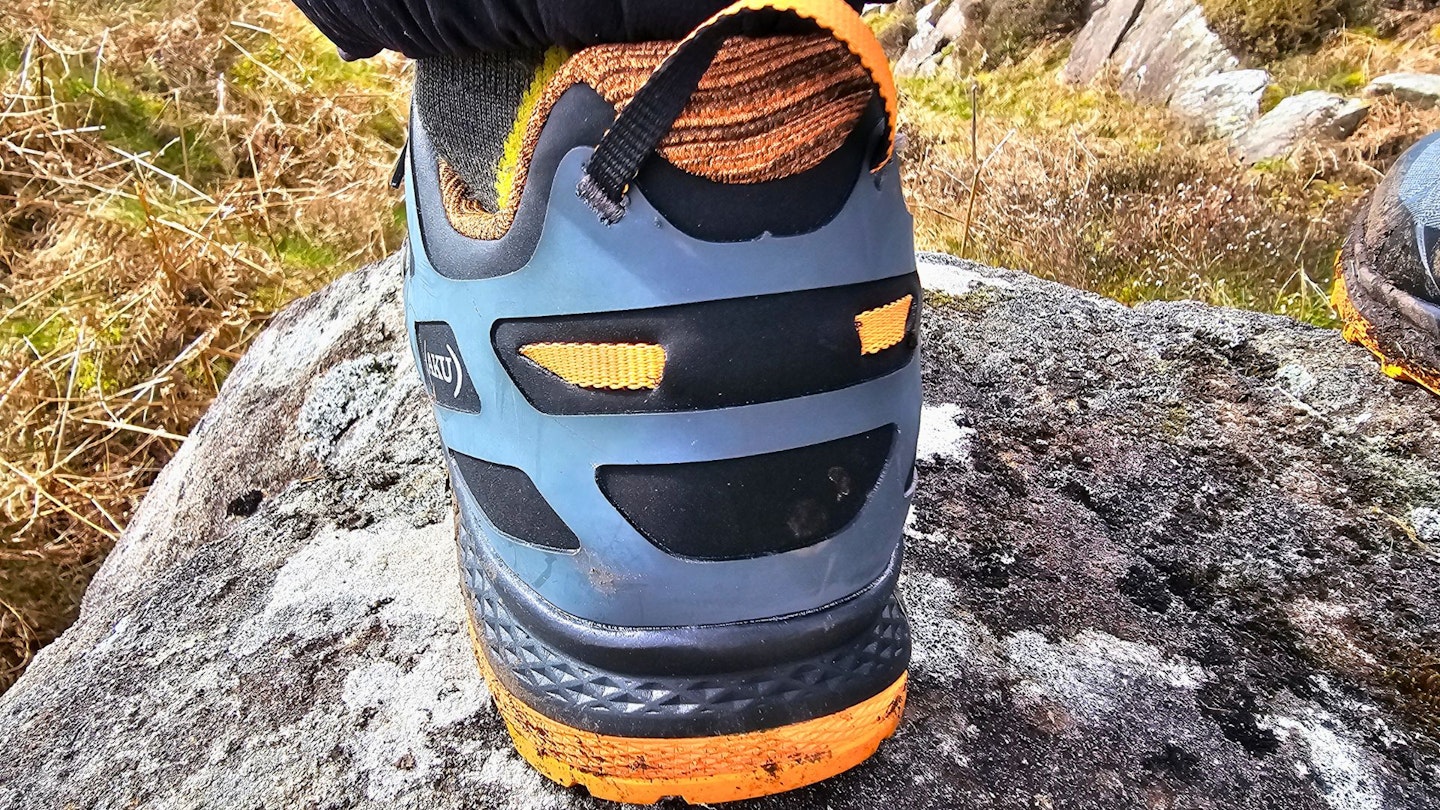
But if you do decide to splurge, you won't be disappointed. This is an extremely well-built shoe that excels across a range of terrain including steep technical ground, with a streamlined and ergonomic fit that strikes a great balance between precision, agility and all-day comfort.
We tested the Rocket DFS in the hills and mountains of Eryri (Snowdonia), North Wales, which included tackling the rugged peaks of the Glyderau, as well as Snowdon’s Watkin Path. It proved to be very comfortable yet supportive, delivering reliable traction on both muddy trails and bare rock. The Gore-Tex lining did its job, keeping feet dry and warm without overheating.

However, what really distinguishes the Rocket DFS from the competition is its versatility. The DFS lacing system means you can really pull them in tight for extra precision on broken, rocky ground. Even though this isn’t a dedicated approach shoe, we happily tackled easier scrambles, like Tryfan’s North Ridge.
The other element that adds to this shoe's adaptable nature is the fact that despite the protective and structured feel, it's also very light – surprisingly so, in fact. Overall weight is comparable to rivals like the Inov-8 Roclite GTX and the Danner Trail 2650 Mesh GTX, but the Rocket DFS feels significantly more robust than either of those competitors, making it better suited to more demanding mountain days.
Verdict

A versatile and capable trail hiking shoe that works well on mixed mountain terrain, thanks to its innovative lacing system, low weight, structured build and superb traction.
How we tested
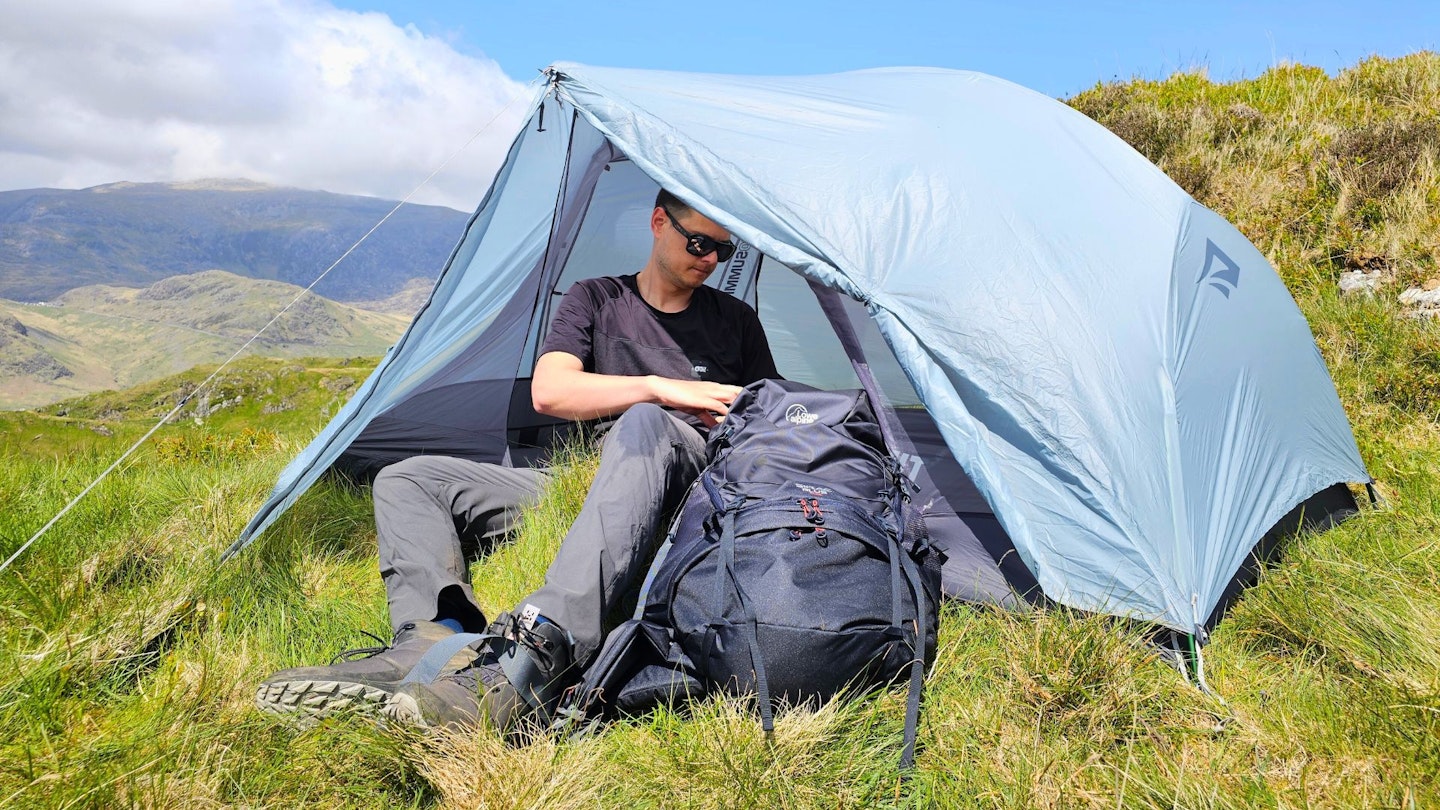
The AKU Rocket DFS was tested and reviewed by Matt Jones who is one of the UK's most well known outdoor writers. Matt is a former magazine editor and is currently a freelancer who writes tests gear for us on LFTO and our magazine, Trail.
Based in Snowdonia, Matt is able to give outdoor gear, from hiking shoes to tents, a true real world workout in a range of demanding conditions. Although primarily UK-based, Matt has also completed numerous treks and climbed mountains all over the world including in the US and New Zealand.
